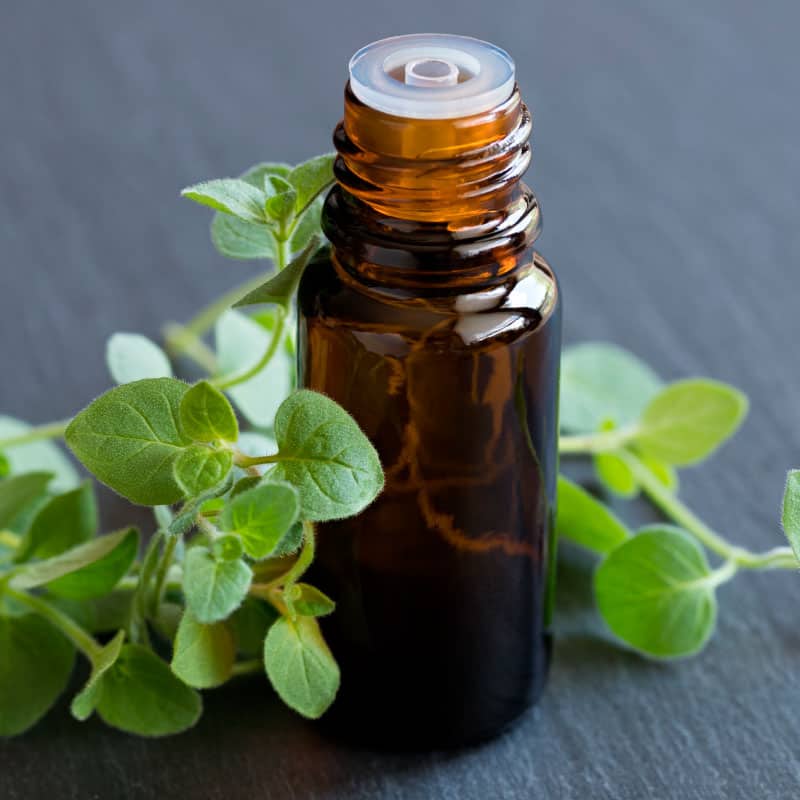This Dr. Axe content is medically reviewed or fact checked to ensure factually accurate information.
With strict editorial sourcing guidelines, we only link to academic research institutions, reputable media sites and, when research is available, medically peer-reviewed studies. Note that the numbers in parentheses (1, 2, etc.) are clickable links to these studies.
The information in our articles is NOT intended to replace a one-on-one relationship with a qualified health care professional and is not intended as medical advice.
This article is based on scientific evidence, written by experts and fact checked by our trained editorial staff. Note that the numbers in parentheses (1, 2, etc.) are clickable links to medically peer-reviewed studies.
Our team includes licensed nutritionists and dietitians, certified health education specialists, as well as certified strength and conditioning specialists, personal trainers and corrective exercise specialists. Our team aims to be not only thorough with its research, but also objective and unbiased.
The information in our articles is NOT intended to replace a one-on-one relationship with a qualified health care professional and is not intended as medical advice.
Why Am I Always Tired? 11 Reasons (Plus Natural Remedies for Each)
March 7, 2023

Do you ask yourself, “Why am I so tired, and why am I always tired?” Do you feel like no matter how much sleep you get, you’re still tired all the time?
Getting a good night’s sleep is important for having plenty of energy, but there’s more to the story than just sleeping well. If you’re always struggling to keep your energy up, things like your diet, hormonal balance, exercise routine, amount of mental stressors in your life and genetics are all relevant factors to consider.
All of these influence your hormone levels in one way or another, and many can make it difficult to sleep at night and deal with everyday sources of stress, leaving you exhausted. You can also feel tired after eating, and believe it or not, oversleeping can lead to fatigue as well.
Luckily, there are plenty of lifestyle tweaks that you can put into play in order to fight fatigue and reclaim your energy. If you are tired all the time, it is important to make sleep — high-quality sleep — a priority.
If you are reaching that eight-hour threshold and still feeling exhausted, your low energy level may be an indicator of an underlying problem. Let’s find out why you’re always tired.
Why Am I Always Tired? 11 Reasons
1. Thyroid Disease
Twenty million Americans suffer from thyroid disease, and 60 percent of these people are unaware of it, according to the American Thyroid Association. Thyroid disease is especially a threat for women and older adults.
Thyroid disease can cause a wide variety of symptoms, including:
- fatigue
- moodiness
- muscle and joint pain
- weight gain or loss
- vision problems
- poor work performance
- changes in body temperature
- changes in appetite
A thyroid disorder can show up in many different forms because the thyroid gland is considered a “master gland,” one that secretes hormones that in one way or another impact almost every bodily function. For example, the thyroid gland is responsible for regulating body temperature, heart rate, production of protein, and also helps control your metabolic rate and energy levels.
Thyroid Disease Causes:
How are thyroid disorders caused? There are believed to be four main contributing causes of thyroid disease, which may be the reason you feel like you’re always tired:
- Hormonal imbalances caused by stress and diet
- Food intolerances to things like gluten and dairy
- Radiation and toxicity exposure
- A nutrition deficiency in iodine or selenium
Natural Remedies for Thyroid Disease:
A thyroid disease may cause you to feel sluggish. Here are some of the ways you can help recover:
- Go gluten- and mostly dairy-free (especially from A1 casein cows).
- Avoid toxins and heavy metals like BPA (Bisphenol A) found in plastic bottles and aluminum cans.
- Have your iodine and selenium levels checked, and then include more food sources of both or take supplements if need be.
- Detox your body of heavy metals by using products like milk thistle, turmeric, chlorella and cilantro — plus consider having metal fillings removed from your teeth.
- Consume adaptogen herbs and superfoods like maca powder, ashwagandha and tulsi.
- Adjust your diet to have a lower carbohydrate intake, but include plenty of lean protein and healthy fat sources (especially foods like coconut oil, coconut milk, avocado, grass-fed beef, wild fish, chia, flaxseeds and hemp seeds).
2. Adrenal Fatigue or Chronic Fatigue Syndrome
Adrenal fatigue is believed to affect most adults worldwide at one point or another and is caused by a hormonal imbalance, similar to a how thyroid disease develops. Your adrenal glands are extremely important endocrine glands that release more than 50 different hormones, including the energy-regulating hormones cortisol and adrenaline.
Chronic fatigue syndrome causes similar symptoms to adrenal fatigue and is believed to affect up to 2.5 million people in the U.S. each year. Women are four times as likely to have chronic fatigue syndrome, especially those in their 40s or 50s, which is the age group that’s most impacted.
Symptoms of chronic fatigue syndrome and adrenal fatigue syndrome are similar and include:
- fatigue that doesn’t go away even after getting good sleep
- difficulty falling and staying asleep through the night
- muscle and joint pain
- stiffness and tenderness
- headaches
- frequently getting sick, such as having a sore throat, cold or flu-like symptoms
- weight gain
- digestive problems, like constipation or cramps
- mental fogginess
- trouble concentrating and remembering things clearly
These key hormones increase and decrease according to the amount of stress put on your body. As a result, high stress levels and adrenal fatigue symptoms are closely tied — it’s also why feeling frantic, busy and high-strung equates to you feeling like you’re always tired!
Adrenal Fatigue Causes:
When you’re under a high amount of stress due to emotional, physical and mental circumstances — which is common in almost all adults in our busy modern society — your adrenals can suffer, and fatigue can set in. There are many potential causes of adrenal fatigue that make you feel completely wiped out, and they include:
- stressful family events
- environmental toxins and pollution
- chronic stress due to finances or an unfavorable work situation
- emotional trauma and abuse
- lack of sleep
- overexercising
- drug and alcohol abuse
- poor diet
Chronic Fatigue Syndrome Causes:
People with chronic fatigue syndrome usually have specific, measurable abnormalities that include:
- hypothalamic activity
- pituitary dysfunction
- poor immunity, including a low count of natural “killer cells”
- hormonal deficiencies that are sometimes overlooked in a standard blood tests
- frequent infections
- yeast overgrowth
Natural Remedies for Adrenal and Chronic Fatigue:
In order to regain your energy, what can you do to solve adrenal fatigue or chronic fatigue for good?
- Change your diet by avoiding caffeine, excess sugar and carbohydrates, hydrogenated oils, and processed and packaged foods. Instead, fill up on hormone-balancing healthy fats, proteins and plenty of fresh vegetables.
- Adaptogen herbs can also be extremely useful for helping with adrenal and chronic fatigue. Medical studies have shown that adaptogens — naturally occurring foods that help balance hormones and reduce the body’s stress response — can help improve cortisol levels, insulin sensitivity and result in better energy. Try adaptogens like ashwaganda, holy basil and maca root, in addition to nutrients like omega-3 fish oils, magnesium, vitamin B5, vitamin B12, vitamin C, vitamin D3 and zinc.
- Limit stress by exercising regularly in a healthy way, getting plenty of sleep and practicing various relaxation techniques, like reading, journaling, praying and any other activities that work for you.
3. Sedentary Lifestyle
In today’s busy, always on work environments, it is common for many people to develop a sedentary lifestyle.
Sitting all day is very hard on your body and often causes soreness, pain in your neck, stiffness, back pain and chronic headaches — plus such an unenergetic lifestyle causes fatigue, making you feel like you’re always tired!
Your body was made to move, so when it doesn’t get regular activities, you can experience mood issues, sluggishness, tiredness and weight gain.
What Causes a Sedentary Lifestyle:
- desk job
- lack of movement
- back problems
- chronic pain
- habitual sitting
- lack of motivation
Regular exercise can help balance hormones, improve insulin resistance and help you get better sleep, all of which are important for fighting a lack of energy. Exercise does wonders for the body by releasing endorphins, boosting your stamina and lifting your mood. (Of course, it can also add more muscle tone to your body while burning unhealthy fat.)
One of the biggest perks of being more active? It helps many people regulate hormonal patterns that allows them to sleep better at night.
According to the Department of Exercise Science at the University of South Carolina, there is a uniquely potent effect of exercise on sleep. The researchers of a 2005 study concluded that “no other stimulus elicits greater depletion of energy stores, tissue breakdown, or elevation of body temperature, respectively. Exercise offers a potentially attractive alternative or adjuvant treatment for insomnia … Exercise could be a healthy, safe, inexpensive, and simple means of improving sleep.”
Even when you’re feeling tired, if you think that skipping your normal exercise routine is going to positively impact your energy, you might want to think again about blowing off the gym or that run you planned. Exercise can actually help wake you up! After all, the daytime was meant for us to be active and outdoors for at least 30 minutes a day … rather than chained to your desk or slaving away in the kitchen.
While it might feel difficult to get started when you’re always tired, long-term exercise will result in better hormonal balance and prolonged energy as you get more used to it.
One study conducted by the University of Georgia, for example, found that when adults who were initially sedentary began exercising lightly over the course of six weeks — just three days a week for about 20 minutes — they had more energy overall compared to when they first began.
How to Get Moving:
- Try a standing desk or one that adjusts for standing and sitting.
- Sit on a large exercise ball. It keeps your back straighter and engages your core without putting as much strain on your hips and legs.
- Take “walk” breaks. Walk around your building, office area or parking lot for 15 minute blocks at a time.
- Plan regular outdoor activities or exercise right before or after work. My favorite is a quick burst training workout first thing in the morning.
- Take five-minute stretch breaks for every hour of work.
4. Depression
Depression is one of the most common mental disorders and energy zappers in the U.S., with an estimated 21 million adults ages 18 or older having at least one major depressive episode per year.
Depression Causes:
Depression is believed to be caused by such variables as:
- high stress
- unresolved emotional problems
- neurotransmitter imbalances
- hormonal imbalances
- alcohol
- nutrition deficiencies
- lack of sunlight
- toxicity from heavy metals
- food allergies
Natural Remedies for Depression:
Two of the biggest and most difficult symptoms to deal with regarding depression are lack of energy and low motivation. Luckily, changes in your diet can really help alleviate depression. This is because foods can significantly affect mood via the actions of neurotransmitters in our brains.
Follow an anti-depression diet to start boosting your ability to produce “feel-good hormones”:
- Drastically reduce your intake of processed and refined foods, fast foods, sugar-heavy foods, large amounts of simple carbohydrates, and caffeine and alcohol.
- Replace these energy-busting foods with proteins, vegetables, healthy fats like omega-3 fatty acids and coconut foods, and other whole foods that make up a healing diet.
- You can also try incorporating exercise, relaxation techniques and essential oils into your daily routine. Essential oils, for example, are an all-natural and cost-effective way to boost mood.
- Try essential oils like rose, bergamot, lavender, roman chamomile and ylang ylang, which have been proven to help elevate mood for many people suffering from depression and anxiety.
5. Poor-Quality Sleep (Not Enough or Not Consistent)
Most adults need between seven to nine hours of sleep consistently, each and every night, to feel their best, according to the National Sleep Foundation.
Poor Sleep Causes:
- poor diet
- stress
- staying up late
- drinking alcohol
- certain medications or supplements
- mood or hormone imbalance
- trauma or abuse
- adrenal fatigue
- pain and chronic pain
- GERD/acid reflux/digestive disorders
- normal family life — infants, children, etc.
There is such a range of reasons why we may not sleep long enough or well — and many more reasons than what’s listed here. However, it is important if you want long-term wellness for you and your family to actively pursue healthy sleeping habits.
“Sleep deprivation studies repeatedly show a negative impact on mood, cognitive performance, and motor function,” state researchers from the Department of Neurology at Emory University School of Medicine.
While it’s no surprise that you need to sleep in order to avoid feeling like you’re always tired, you may be surprised to hear how just a small amount of sleep deprivation over time can really add up and harm your health and mood.
A sleep clinic study done by the University of Pennsylvania School of Medicine found that chronic restriction of sleep periods (sleeping between four to six hours per night over a 14-day period) resulted in significant cumulative deficits in cognitive performance on all tasks.
The study concluded that “chronic restriction of sleep to six hours or less per night produced cognitive performance deficits equivalent to up to two nights of total sleep deprivation. It appears that even relatively moderate sleep restriction can seriously impair waking neuro-behavioral functions in healthy adults.”
It’s also worth finding out whether or not you suffer from sleep apnea, which is a disorder that causes poor sleep quality due to uncontrollable pauses in breathing, taking shallow breaths during sleep and suddenly waking up startled. During the night, someone with sleep apnea might repeatedly stop breathing up to 30 times every hour, often for very brief moments of time and without the person being aware of it at all.
In fact, a scary finding is that many people with sleep apnea think that they actually get good sleep!
To confirm whether or not you have sleep apnea, a sleep study test called the polysomnogram will need to be performed.
Meanwhile, you will know by now whether or not you suffer from narcolepsy, a chronic neurological disorder that makes it difficult for the brain to control sleep-wake cycles. This disorder adversely affects quality of life, as symptoms include extreme drowsiness and falling asleep unwillingly during an activity like work or school.
Natural Ways to Get to Sleep Fast:
- Practice relaxation techniques that help you to unwind and fall asleep, such as journaling or reading.
- Take an Epsom salt bath to soothe muscles and ease your mind.
- Take magnesium supplements in the range of 300–400 milligrams, which promote relaxation and relieve muscle pain.
- Use essential oils, such as lavender or frankincense.
- Avoid sugary and carb-heavy meals before bed, which can give you a “sugar high,” keeping you up.
- Limit caffeine to small amounts during the morning hours or at least cut yourself off after noon.
- Turn off all electronics two hours or more before bed to avoid blue-light exposure, which can disturb melatonin levels and make it hard for your mind to become sleepy.
6. Anemia
Anemia is a condition where a person has a lower than normal level of red blood cells. Anemia is related to a low supply of oxygen reaching cells and tissues throughout the body.
Anemia symptoms include:
- feeling like you’re always tired despite how much you sleep
- weak bones and muscles
- trouble exercising
- being unable to concentrate
In extreme cases:
- tiredness, fainting
- shortness of breath
- heart attack, angina
- spleen dysfunction
- digestive issues
- skin yellowing
Causes of Anemia:
- Anemia occurs when there’s a problem with red blood cells making hemoglobin, a protein that carries oxygen throughout the body, especially to the brain, where it’s much needed.
- It’s connected to insufficient iron levels within the blood, in addition to low vitamin B12 and folate levels.
- Anemia can also be caused by a loss of blood or a diet that’s too low in those essential nutrients and, thus, hinders the body’s ability to make enough hemoglobin.
Natural Remedies for Anemia:
Anemia symptoms can be greatly reduced by improving your diet and including plenty of foods that are rich in iron, vitamin B12 and folate. These include:
- Liver (from beef, chicken, etc.) that’s extremely high in iron and B vitamins.
- Blackstrap molasses, which a healthy natural sweetener high in iron.
- Brewer’s yeast, or nutritional yeast, which is loaded with B vitamins and tastes something like cheese but is actually totally dairy-free.
- Foods high in vitamin C that help with iron absorption, such as citrus fruits and cruciferous vegetables, like broccoli or cauliflower.
- Green leafy vegetables that have a significant amount of iron and folate.
7. Leaky Gut Syndrome
Leaky gut syndrome is a condition in which your digestive tract becomes damaged and small holes begin to develop in your gut lining. Small particles that normally can’t pass through your gut wall begin seeping through into your bloodstream.
When someone has leaky gut syndrome, some of the things that can pass through the gut lining include proteins like gluten, bad bacteria and undigested foods particles.
Symptoms of leaky gut syndrome include:
- feeling tired
- digestive issues, like cramps, bloating or diarrhea
- skin irritations and rashes
- trouble concentrating and learning
- muscle and joint pain
- headaches
- weight gain
- changes in mood
Leaky Gut Syndrome Causes:
- prescription medication
- antibiotics
- eating foods high in phytates and lectins — such as glutenous grains, nuts, seeds (not soaked or sprouted)
- GMO foods
- processed foods, added refined sugars, high fructose corn syrup
- thyroid disease
- autoimmune conditions
When it comes to your energy levels, leaky gut is problematic because it can result in a nutrient malabsorption that cuts short your body’s working supply of essential vitamins and minerals.
For example, B vitamins are crucial for energy production because they are responsible for turning the basic compounds found in the foods you eat — like glucose, amino acids and fatty acids — into useable “fuel” for the body. Iron and zinc levels (nutrients important for circulating oxygen throughout the body) may also become low due to leaky gut.
Natural Remedies for Leaky Gut Syndrome:
To effectively solve leaky gut syndrome, you need to adjust your diet and certain lifestyle factors, too:
- The solution to treating leaky gut includes removing foods and factors that damage the gut (like gluten and sugar). Replace these with various healing foods such as fermented foods, bone broth, sprouted grains, seeds and nuts, healthy sources of protein, vegetables and lots of healthy fats.
- Also consider taking gut-healing supplements like probiotics, L-glutamine, pancreatic enzymes and quercetin.
- Make sure to fix any nutrient deficiencies by including plenty of whole foods in your diet that supply zinc, iron and B vitamins.
8. Dehydration
Dehydration occurs when there is an excessive loss of body fluids, especially of water and electrolytes — or not enough water taken in. When you start to feel thirsty, you body is already dehydrated.
Causes of Dehydration:
- Excessive exercise without replenishing
- drinking soda or other beverages instead
- being outside in the hot sun for an hour or more
- illness — vomiting, diarrhea, sweating
- diabetes
- prescription medications
- menstrual cycle
- IBS
- stress
- neglecting to drink water
- higher altitudes
The most common cause of dehydration is simply not drinking enough water or substituting water intake with only soda or juice. This is a critical mistake, as not only does that spike your blood sugar, but also your cells cannot get enough water to function properly!
The major electrolytes in the body — sodium, potassium, chloride and bicarbonate — are ion compounds that literally help your body have energy via the force of electricity that keeps your organs and cells functioning. Some parts of the body that are more “electrically wired” and require a high amount of electrolytes and water include the brain, heart, nervous system and muscles.
Dehydration affects the actual viscosity (thickness) of your blood and the amount that your heart must beat every minute, as it tries to get oxygen to all your cells.
When you’re dehydrated, your heart sends oxygen and nutrients to your brain, muscles and organs at a slower pace. As a consequence, you begin to feel:
- fatigued/exhaustion
- lethargic
- moody
- like you have “brain fog”
- weakness in muscles
- unable to concentrate and perform tasks
According to researchers from the University of Barcelona’s School of Psychology, “being dehydrated by just 2 percent impairs performance in tasks that require attention, psychomotor and immediate memory skills.”
Natural Remedies for and Prevention of Dehydration:
Drink more water throughout the day, increase your intake of vegetables and fruits, and make sure you’re getting plenty of electrolytes in the form of whole foods (and electrolyte drinks). When it comes to fruits and vegetables, some of the best options to obtain electrolytes and to stay hydrated include:
- Coconut water
- Celery
- Watermelon
- Cantaloupe
- Cucumber
- Kiwi
- Bell peppers
- Citrus fruit
- Carrots
- Pineapple
To calculate the amount of water you need to drink daily to avoid dehydration, take your weight in pounds, and divide that number in half. In other words, if you weighs 160 pounds, you need to drink roughly 80 ounces per day — roughly 10 eight-ounce glasses of water — to stay fully hydrated.
This is only the amount of water if you do not exercise or do anything strenuous! If you work out or if you are active, then you ideally need to drink at least an extra eight ounces for every 30 minutes of exercise.
9. Emotional Stress
Can tiredness be psychological? Well, emotional stress can take a huge toll on your energy levels, especially when stress progresses to the point of an anxiety disorder or a sleep-related problem.
According to the Anxiety and Depression Association of America (ADAA), anxiety disorders are the most common mental illness in the U.S. The ADAA states, “Anxiety disorders are highly treatable, yet only 36.9% of those suffering receive treatment.”
Emotional Stress and/or Psychological Causes:
Anxiety disorders are caused by a complex set of risk factors, including:
- genetics
- brain chemistry
- diet and lifestyle habits
- It’s also very common for someone with anxiety to also have a form of depression and vice versa — therefore, energy levels can suffer even more.
- poor gut health
Natural Remedies for Emotional Stress:
To combat emotional stress, you’ll want to focus on adjusting your diet (more on that below) and also:
- get plenty of sleep and exercise
- avoid stimulants, including those found in many processed foods
- try using essential oils, adaptogen herbs, and taking supplements like magnesium and B vitamins that support your ability to cope with stress
- probiotics
- consider a healing diet to more thoroughly resolve the problem
10. Blood Sugar Imbalance
Most people have blood sugar imbalances that can be easily fixed, but they aren’t even aware that this is a major contributing factor to their health problems and lack of energy. Chances are if you’re always tired, your blood sugar has something to do with it.
Over time, imbalances in blood sugar can lead to serious diseases like type 2 diabetes.
Symptoms of a blood sugar imbalance include:
- feeling fatigued/exhaustion
- food cravings
- headaches
- moodiness
- anxiety
Causes of Blood Sugar Imbalance:
- poor diet (processed foods, added sugars and simple carbohydrates)
- type I and II diabetes
- pancreatic function
- parasites
- candida
Blood sugar levels become unbalanced when your diet is too high in various forms of sugar, which enter the bloodstream rapidly and can cause mood swings due to extreme elevations in blood glucose. Sugary foods, especially processed ones that contain tons of added sugar, put you on a “sugar high” followed by a “sugar crash.”
Natural Remedies for Blood Sugar Imbalances:
To get blood sugar levels back under control, you’ll need to really reduce, or even to completely eliminate, all sources of refined sugar from your diet. These include:
- All sugary beverages — which are some of the worst culprits — like all soda, fruit juice, energy drinks, and sweetened coffee or tea beverages.
- Packaged snacks, like all cookies, cakes, cereals and candy.
- Even natural sweeteners like raw honey and maple syrup, which can still affect blood sugar levels.
- Also consider cutting back or eliminating grains, especially gluten-containing grains like wheat products (including “whole wheat”). These contain large amounts of carbohydrates that are broken down into sugar within a few minutes of consumption. They can cause intestinal inflammation that affects hormones like cortisol and leptin, leaving you feeling weak and tired.
- Conventional (nonorganic and pasteurized) cow’s milk and dairy products should also be eliminated. Stay away from dairy products that contain A1 casein, which is produced by conventional cows and found in most milk, yogurt and cheese that’s available in the grocery store. When buying dairy, only purchase raw and organic kinds from pasture-raised animals.
11. Poor Diet
You’ve probably noticed that almost all of the causes of you feeling like you’re always tired can be partially alleviated through changing your diet. That’s because your diet ultimately impacts your:
- hormones
- neurotransmitter function
- sleep cycles
- mood
- outlook on life
- motivation
- and so much more
Causes of a Poor Diet Causing You To Be Tired:
- habits
- lifestyle
- convenience
- other influences
- low-priority
One of the biggest risk factors for feeling tired all the time is being a “carboholic,” meaning someone who overeats grains, refined carbs and sugary foods. This same person also doesn’t acquire enough healthy fats, proteins, vegetables and essential nutrients that support ongoing energy.
How to Correct a Poor Diet:
Instead of hitting the dreaded 2 p.m. “post-lunch coma,” try changing your diet to incorporate more of these energy-promoting foods:
- Foods high in B vitamins — B vitamins are abundant mostly in protein-rich foods. Try having plenty of sources, like grass-fed beef, wild-caught fish, cage-free organic eggs and poultry, and all kinds of green leafy vegetables.
- Foods high in calcium, magnesium, selenium and zinc, which can all help you relieve stress and get better sleep — these include unpasteurized organic dairy products, avocados, wild-caught salmon, green vegetables, nuts and seeds.
- Healthy sources of fats, including omega-3 fatty acids — wild-caught fish, seeds, coconut and olive oil, avocados, and nuts can help stabilize hormones and your mood, so you sleep through the night better and fight depression, stress, and thyroid (such as hypothyroidism) or adrenal disorders.
At the same time, try to limit or avoid the following …
- High-sugar foods: Consuming too much sugar can negatively impact your energy by giving you blood “sugar highs” followed by “lows.”
- Processed and refined flour: These “simple carbohydrate” foods act very similar to sugar in the body. They lead to fluctuations in blood sugar, mood swings, hormonal changes and food cravings.
- Excessive caffeine: Too much caffeine can cause anxiety and hinder your ability to sleep well, even if you stop drinking it in the afternoon. Caffeine can remain in your system for up to six hours, so if you are going to have some, curb your intake by around noon each day.
- Too much alcohol: Alcohol may help you to fall asleep, but it also interferes with REM sleep (rapid eye movement sleep), which is the deepest sleep state that’s needed to feel rested the following day. It can also increase anxiety and make it hard to manage stress.









